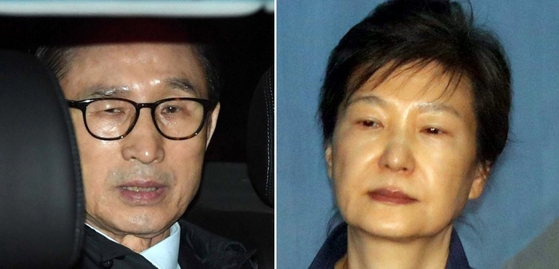Amnesty against former Presidents Lee Myung-bak and Park Geun-hye was controversial in the legal community on the 3rd. The opposition to the “remission of the judiciary of the political power” and the approval of “the trial and the pardon are different domains” over what the amnesty publicized before the sentence was confirmed were mixed.

Lee Nak-yeon (pictured), a representative of the Democratic Party, said through a media interview on the 1st that he would propose a special pardon for former Presidents Lee Myung-bak and Park Geun-hye. There is a controversy among the political and legal circles over the envoys to the two former presidents and the appropriateness of their remarks. News 1
Earlier, in an interview with the Democratic Party, Lee Nak-yeon said in a media interview on the 1st, “It will be a big key for the people’s unity,” and “I will suggest the pardons of the two former presidents to President Moon Jae-in at the appropriate time.” MB may be subject to a special pardon under the Amnesty Act as he was sentenced to 17 years in prison last October, but former President Park is not yet subject to a special envoy because he is facing a re-appeal on the 14th.
Lee Choong-sang (64, 14th Judicial Research and Training Institute), a professor at the Graduate School of Law at Kyungpook National University, criticized the JoongAng Ilbo on the same day, saying, “The public discussion of amnesty before the judgment is not polite to the Supreme Court.” Prof. Lee, who was a judge in the second trial for charges such as civil war and bribery by former Presidents Chun Doo-hwan and Roh Tae-woo in 1996, said, “At that time, there was no discussion of amnesty until the Supreme Court ruling, and the period of about eight months after the Supreme Court ruling was finalized in 1997. “I wasn’t displeased with the pardon because there was,” he said. “I may be writing or amending the ruling against former President Park now. What is the difference from saying,’I will lose effect as soon as I am sentenced, so write it quickly’.”

Former President Lee Myung-bak (左), Former President Park Geun-hye (右). Former President Lee may be subject to a special pardon after receiving a final sentence of 17 years in prison in October last year, but former President Park is not yet subject to special envoys as he is ahead of a re-appeal date on the 14th. yunhap news
Professor Lee also said, “I remember that when I was in the case of former President Kim Young-sam’s second son, Hyun-cheol (currently, Kim Young-sam Democratic Center), while reviewing the records, the pardon was publicly promoted and collapsed.” He pointed out that “it is the time of the judiciary until the judgment is sentenced, and I wouldn’t be able to say that unless the judiciary was downplayed.” Kim Hyun-cheol was sentenced to two years in prison on charges of evading and retrieving Jo Sejeong in 1999, and was reinstated the following year after he was exempted from remaining sentences within a month after withdrawing re-appeals. At that time, even before the sentence was confirmed, the opinion of the passport-launched pardon raised its head and criticized public opinion that the president’s right to pardon was abused.
Former Justice Park Il-hwan (70th and 5th term), famous for being a’Judges YouTuber’, said in a call on the same day, “It is difficult to publicize the issue of pardon before the sentence is confirmed, because there are issues of equity with others.” After serving as the Supreme Court Justice for 6 years from July 2006 under the appointment of former President Roh Moo-hyun, he said, “The person who judges is out of strength, so if you try hard, you think what the judgment means? Politicians will do it because they have to speak up quickly, but from the standpoint of a judge, they will pardon anyway, and it becomes useless to think about how to get sent out. Then it was very upsetting.”

The legal elders responded differently to the talk of pardon from the politics before the Supreme Court decision. The photo shows Supreme Court Chief Kim Myung-soo (fourth from the left) speaking at a hearing on the sentence of Gyeonggi Governor Lee Jae-myeong (a suspicion of obstructing the exercise of ex officio abuse rights and violating the Public Official Election Act) held at the Supreme Court of the Supreme Court in Seocho-gu, Seoul on the afternoon of July 16. Photo Joint Report
On the other hand, former Justice Park Jae-yoon (73, 9 times of the judicial examination), who served as Supreme Court Justice for 6 years from July 2000 during the Kim Dae-jung administration, said in a call on the day that “It is difficult to say that it is not unfair to bring up the pardon even before the sentence was confirmed.” Made a view. Former Justice Park said, “The pardon is a political story and is made according to a separate judgment. The pardon does not mean that the judgment is attacked. The ruling is a judgment, and the pardon is carried out by the president according to the constitutional authority, so there is no reason to be polite.” He added, “(In the case of former President Park’s trial), because the judgment is in the final stage, it cannot be said that it is not reasonable just because the amnesty came out 10 days earlier in time.” A former Supreme Court Justice, who requested anonymity, also said, “There is no need to react to the talks from the political power.”
Reporter Ha Junho [email protected]
